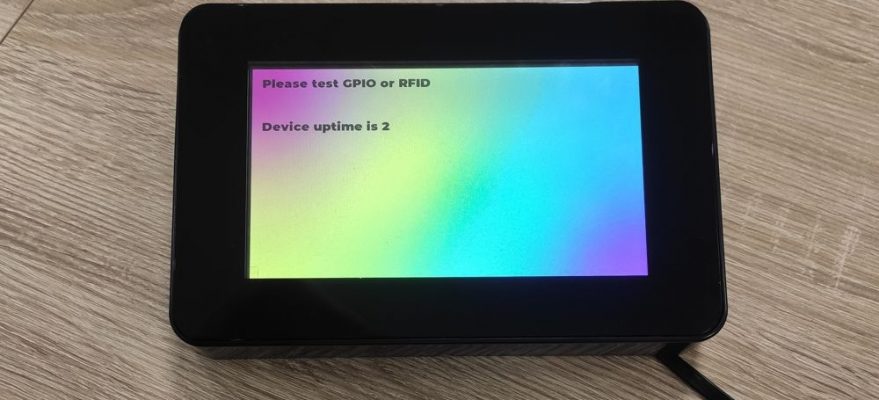Background – Purpose of the Project
Our customer supplies video capture systems to theme parks.
Eccel were asked to develop an interactive gaming tablet that could be installed in malls.
Each unit would contain games that challenged children in a variety of ways, with waypoints around the system. Interactivity was central to the development, with children being encouraged to play against each other, or beat scores from their previous visits. The system would also be required to provide real-time instructions and messages with instant performance feedback to live leaderboards.
Challenges to address
The Customer originally approached Eccel to solve a problem of poor RFID performance spoiling the user experience.
Over the years 2019-2023 there have been three versions of this design with each new design improving upon the last. The developed device (DD) was required to overcome the following challenges by meeting set criteria:
- Replace an expensive single board computer, with 2-off 32-bit MCUs on a single PCBA and to integrate RFID circuitry within this.
- Provide full graphics capable of playing full HD quality video. This would enable much more impressive interface messages and advertising to users.
- Investigate PCB antenna performance from an antenna made as part of the main PCB behind but outside the LCD screen and if this was inadequate, move the antenna forward to in front but outside the LCD screen.
- Provide both Ethernet interface and Wi-Fi interface, with the unit being powered by the user’s choice of Power over Ethernet (PoE)
- Design a professional 3D printed case and mounting that could later be injection moulded to contain the electronics and associated GPIO peripheries.
On top of these technological challenges, the current customer system was too expensive for commercial release and Eccel suggested a complete redesign of the system to maximise functionality whilst minimising hardware cost.
Additionally, the overall solution would need to meet FCC Part 15C RF approval requirements to enable sale and operation of the units in the USA.
Technology Developed to Address challenges
Eccel developed a product that replaced the industrial PC with an Embedded MCU plus flash memory with the following features:
- A custom specified LCD with large graphics display to show images and text received into the flash memory of the device over the internet from the cloud-based host control system delivered via Ethernet.
- Detection of ISO 15693 and ISO 14443A format RFID cards and wristbands at 13.56 MHz across the whole area of the device and at a separation distance of 0 mm to 50 mm.
- Communication of RFID detection and user details to the cloud-based host system controller.
- General purpose inputs and outputs (GPIOs) to drive LED arrays and take inputs from event buttons pressed by users. These buttons and LEDs can be several metres remote from the unit.
Figure 1 below shows the Prototype DD with illuminated screen showing the internal testing procedure:

Future Versions and Ongoing work: Adventure Park Entertainment RFID to Server Interface
Following simulation testing and modelling, technical schematics were designed and confirmed. A low fidelity prototype was produced for usability and heuristic evaluation, and following iterative changes to correct for technical, functional, and data transfer issues, a high-fidelity prototype was created that included games, control panel, graphical/audio output device, and a data processing centre. Eccel also added improvements that included:
- A more effective GPIO to drive pushbuttons and LEDs.
- Completely new hardware for the main MCU/graphics processor device, LCD, and PoE circuit to cancel frequency ‘noise’.
- Connected to a remote server to drive all screen displays, animation, and load and play different game options into the device’s local memory.
- Real-time communication between the device and server to update scoreboards.
These functional enhancements required complete hardware re-development and, in the case of the graphics processing and animation display, complete firmware re-development.
Eccel obtained regulatory approvals from the FCC for use in the USA and certified for CE for use of the unit across European markets.
The whole process was accomplished in under 12 months from development start, through prototyping, regulatory approvals and out into volume production.
Each step was carried out wholly by Eccel at their in-house R&D and manufacturing facility from rapid prototyping through to production volumes
Contact us to get more details about this project:
sales@eccel.co.uk
